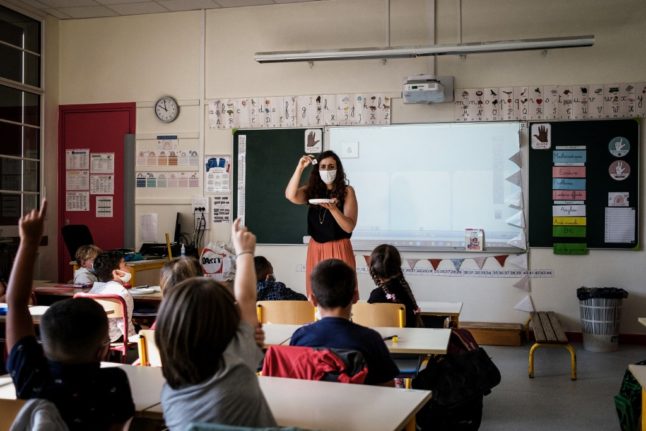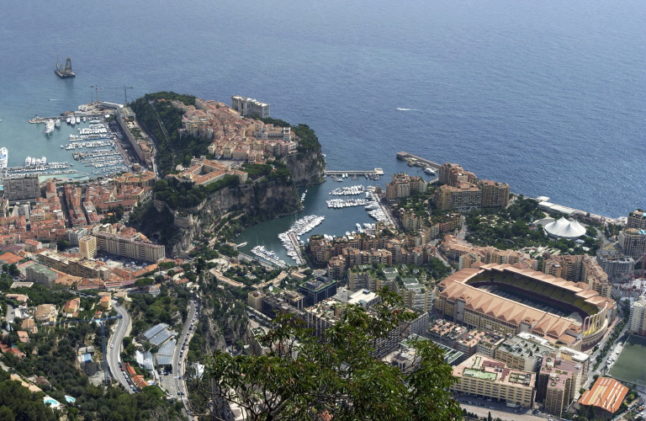It is fair to say that the education system in France is pretty different from that of the United Kingdom or the United States. We interviewed several former English-language instructors who have worked in the French public school system to hear about the things that stood out to them – good and bad.
Long days
The French public school day typically runs from 8.30am – 4.30pm, which is generally longer than school days in the United States. However, French students get a longer lunch break and some French schools have either half-days on Wednesdays, or they might have the day completely off.
Allison Lounes, 35, appreciates the structure of the scholastic calendar in France, having seen it from both the perspective of teacher and mother.
“I do like having Wednesdays off for him to do activities. The days are longer, but it’s nice to have a break and then two more days. School goes until 4:30pm, so there are not a lot of activities happening in the evening,” said Lounes.
READ MORE: Reader question: Is there any kind of logic behind France’s school holiday zones?
Megan Lapke, 29, who taught in two collèges in the Académie d’Orléans-Tours in 2014-2015 and now teaches in a private secondary school in France, quite enjoyed the pause déjeuner.
“I appreciated the long lunches in the French school system, the fact that teachers don’t have to watch kids during lunch or other breaks during the day. I thought their cafeterias were much better than one you would find in the US, and much healthier as well,” said Lapke.
In addition to having Wednesdays off, French pupils (and teachers) get plenty of holiday time – around 16 weeks a year.
Strict teachers
Author Peter Gumbel refers to the French approach to discipline and classroom management as “sit down and shut up.” He is not alone in this critique, several former educators we spoke with also noticed the harshness of discipline in French schools.
“What I was most surprised about at the time in regards to teaching was how strict and almost militaristic the schools are. The students had to stand up whenever an adult came into the room, and they had to stand until the teacher explicitly told them to sit down,” said Lapke.
Former English Assistant, Simone John-Vanderpool, 23, who taught outside Toulouse, explained it like this: “If a student is getting on a French teachers’ nerves they will let them know. They’re maybe more honest than a US teacher would be allowed to be. For example, if a student gets something wrong, the teacher might say ‘Are you awake today?’ versus the American ‘Good Try!’”
For her, it comes down to a difference in culture and training: “American teachers are more trained to focus on effort and if a student is making the effort, whereas in France teachers see it as students not applying themselves.”
READ MORE: International vs French schools: How to decide?
More focus on memorising
Another common point former anglophone teachers noted was the French focus on exams and memorisation.
John-Vanderpool, found this to be the most striking difference between American and French schooling. “They’re a lot more rote knowledge based in terms of teaching,” she said.
“In the United States, we focus a lot more on critical thinking and asking questions like ‘Why is this like this?’ In France, they focus more on rote knowledge, particularly of the culture, historical facts, poetry memorisation, and dictation when it comes to grammar.
“As an assistant, I don’t see everything [happening at school], but I do think they focus mostly on whether students know a set of facts.”
Liam Abbate, 23, who taught middle and high school for a year at the Académie de Clermont-Ferrand, Abbate, found this to be particularly true regarding examinations.
He found that French schooling “taught more to the test” than he had experienced in American public schools. To this end, Abbate added that French schools don’t “always have the interest of the individual student at heart” because they “focus on the good of society.”
Lapke echoed these sentiments, going so far as to say that she does not think “there is a lot of room for individuality in the French system of education.”
Practical skills
When asked what stood out to her most about French public schools, John-Vanderpool said she was struck by the holistic approach to education.
“My overall opinion of the French public school system is that it has a lot of great, foundational aspects to it – like teaching kids how to swim. In the United States, we see it as an extra thing, but it’s a really important skill for kids to have.
That’s a life skill, and I think it’s really cool they make the space for that. I also think that there is a level of closeness teachers are able to have with kids by being able to cook and eat things. It allows you to get a deeper dive into the culture and get kids more excited about things. Food is great for cultural exchange.”
READ MORE: How to become an English teacher in France
Abbate had a similar reaction to the practicality of French schooling, having taught in a lycée professionel (vocational and/or technical secondary school).
“I’ve had students cook for me and make me glasses,” he said. “Not everyone learns the same way or wants to go to university,” explained Abbate, describing the existence of the lycée professionel option rather than lycée classique.
“But what I liked about that was how hands-on it was. A lot of my students had a craft by the time they were in seconde (ages 15 to 16).
I feel like in America it is viewed as a sign of success to go to University, and that it is needed to be successful. But [here] you can have an apprenticeship or a technical degree and that is completely fine for your career.”
Teacher absences
In middle and high schools (collège and lycée), the rule is that if a teacher is absent for more than 15 days, they must be replaced by a substitute. However, this does not reply to absences for under 15 days. A recent study found that in these situations, less than one in five teachers is replaced when absent for under 15 days.
If the school has access to a substitute they will be called in, but more often than not students will sit in with another teacher’s class. In some cases, they might be sent home if a class is cancelled.
READ MORE: From TikTok to K-pop: How French students are learning English online
For Abbate, classes being cancelled was frustrating. “One of the things that was surprising to me about the schedule was how a class could be cancelled or rescheduled at the last minute all the time. Sometimes I would get to school and see that the class I had prepared for was cancelled, and I did not know ahead of time.”
Allison Lounes felt similarly, as a parent: “My son’s teacher has been absent 17 days this year. If a teacher is absent for just a few days, then they put a small group of kids into another teacher’s class…but it’s really just babysitting.”
Lounes attributes this to the teacher shortage going on in France.



 Please whitelist us to continue reading.
Please whitelist us to continue reading.
Member comments